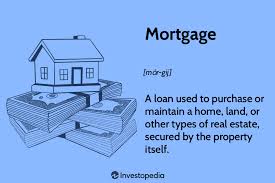Contents
We all feel nervous when we go to a bank or financial institution. After all, if we are there to get a personal loan, it is normal to be a little nervous because of the embarrassment of asking for a loan. Especially if we go to the bank branch unprepared, we are doomed. It is only a matter of time before we become like a nightingale who has eaten mulberries when faced with the questions that the bank employee will ask when entering the credit. In line with this, we need to be well-versed in the issues to be considered when taking out a loan in order to ensure complete and detailed information and document flow.
At this point, please do not personalize the questions asked to you and tell all the truth clearly. After all, banks are private institutions that operate according to legal regulations. In other words, there are certain documents that they are legally required to obtain and certain questions that they are required to ask when granting you a credit. By the way differences between business and personal credits is important also. Additionally, before you go to the bank, be sure to do research on financial literacy and personal finance management.

Before we get into the subject, it should be noted that; we need to calculate exactly the amount we need and will request. In other words, if we are going to buy a house, a car, white goods or any other product, we need to know exactly how much this product will cost. If we do this calculation well, we will be able to clarify exactly how much credit we will need. This way, we will not be surprised when our banker friend asks exactly how much credit is needed.
What Does It Mean to Take Out a Loan?
If there are people around you who have recently taking out a loan (consumer or personal), ask them what interest rate they got the credit at. The number of people who answer this question correctly will be so few that you will be surprised. If anyone knows this, ask them how much they paid for the credit item by item. If they know this, they deserve a reward. According to research, people living in developing countries in particular have very low financial literacy.
In other words, they generally use the loan without asking the bank for such detailed information. However, there are some researches we need to do before going to the bank, such as credit interest and expenses.

If we were to make a list of things to consider when taking out a loan before going to the bank;
- Take your ID and proof of income with you. If you are going to apply to the bank where you receive your salary, your ID is sufficient, they will not ask for proof of income or a payslip.
- Compare the interest rates at banks online or through mobile phone applications called fintech. Sometimes some banks organize special campaigns. In this way, it is possible to catch the most suitable campaign.
- People generally ask about the loan interest rate, especially when taking out a housing or consumer credit, but they do not ask about the total commission or expenses. Banks’ earnings in credit interest, i.e. net interest margins, are low. In other words, they have been making serious money from the actual expenses and commission items in general.
Payment Plan and The Life Insurance
- The problem of the payment plan example. This problem is generally a situation that we all experience depending on our financial literacy level. In other words, it would be great if we could get a sample payment plan before taking out a loan and compare it with the credits from other banks.
- How much is life insurance? In consumer credits, generally every bank wants the person using the credit to have life insurance. They even divide their credit campaigns into two as “interest with life insurance” and “interest without life insurance”. Because most of the life insurance amount will be written as commission income or profit to the banks. On the other hand, life insurance also has an advantage for the person taking out the credit. In other words, if the person taking out the loan dies, the insurance company will pay the remaining part of the loan “depending on various situations”.
Factors to Consider Before Taking Out a Loan

In developed countries where financial literacy is high, people generally know their credit scores. Additionally, they predict how to increase their credit scores and how to maintain them if they are high. In this context, it should be noted that; in a period when digitalization has developed so much with OpenAI and other artificial intelligence revolutions, interest rates are also becoming increasingly individualized. Moreover, if your credit score is good, you can access much more favourable credit interest rates and conditions than someone with a bad score. The issue of credit score is a relatively new issue for developing countries and its importance has not yet been sufficiently understood.
At this point, we recommend that people who do not yet have a credit score, such as young university graduates, get a credit card, even if it has a low limit, and pay it regularly. Even if you make low repayments, your credit score will increase as you make regular payments. Thus, when you need high-amount credits such as housing loans tomorrow or the next day, you will go to the bank branch with an advantageous high score. On the other hand, when it comes to the things to consider when taking out a loan, do not forget to thoroughly question the hidden commissions and expenses that may be included in the credit you take out.
As we mentioned before, some financial institutions may increase your total costs by setting the interest rate low and keeping life insurance and other additional expenses high. In this stage, if you state your request clearly and in detail to the customer representative as “I want to know my total cost including loan expense, insurances and others.”, it will help you.
Mobile Applications and Your Credit Score

In addition, as we mentioned in the items above, it is important for you to get a sample payment plan. Compare this plan with the sample plans you received from the other bank and make your final decision.
In addition, it should be noted that; if you apply for a loan from the mobile applications of relatively large banks, the relevant banks will call you through their employees. What you need to pay attention to here is that you do not accidentally transfer the loan to your account automatically while trying to just get information from the mobile application.
Monthly Payment Taking a Loan and Tips for Credit
Before we get into this topic, it should be reminded that; credit has a cost such as “interest”. In other words, if you have a chance to meet your needs without taking out a loan, it would be more logical to take this chance first. If you have considered this possibility and the credit is your last chance, do not forget to find a proportionate and suitable instalment option according to your income.

In other words, a person who is not very experienced in this regard, and on top of that, if their financial literacy level is low, sometimes runs the risk of shortening the term excessively and increasing their monthly instalment above their payment capacity in order not to pay too much interest. Imagine, someone with a monthly income of fifty thousand takes out a loan with a term of six months. When this person shortens the term in order to pay less interest, if the monthly instalment payment is, for example, 40 thousand USD, they will have to get by with the remaining 10 thousand USD from their monthly income.
In this case, the person in the example is likely to delay the instalment.
So, what happens when an instalment is late on the loan? Well, if we are listing the points to be considered when taking out a loan, we should also consider what will happen in case of delay. If we only delay one instalment, it will not be a big problem.
How to Repay a Loan Efficiently
However, if delays become a habit, we can list the situations we are likely to experience:
- The interest for delay is higher than the normal interest. In other words, if we start delaying the instalments, the interest for delay will be added to the interest we would normally pay. This will increase the total cost of the credit even more.
- Our credit score will drop a little more with each delay. If the delays increase and our score drops even more, our chances of taking out a loan from the bank for our future needs will gradually decrease.
- Unfortunately, being late becomes a habit over time. In other words, those who delay once may delay again. This negatively affects the morality of paying credit. Naturally, our relationship with the banks will be damaged in this case.
